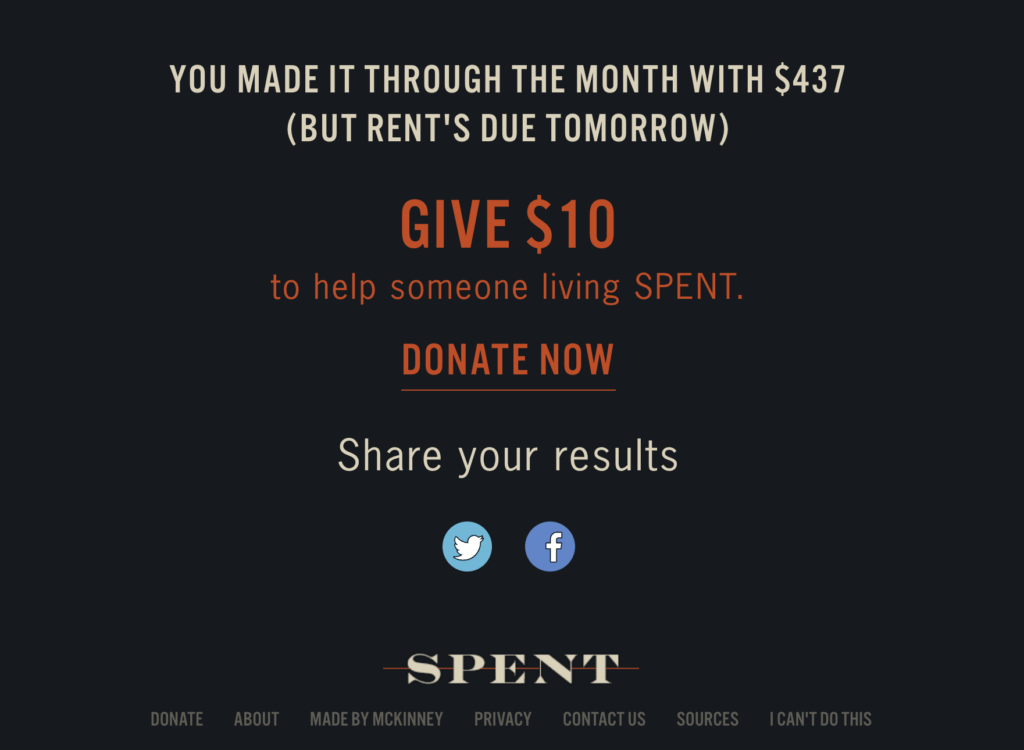I played “Spent,” a single-person, web-based game developed by McKinney in collaboration with Urban Ministries of Durham. In this game, the player assumes the role of an unemployed individual with limited income and savings. Each day the game presents a financial challenge, requiring the player to make decisions based on their current account balance. The objective is to successfully navigate through the month (30 days), ideally with money remaining in the bank.
MDAO:
Mechanics:
- Every day, the player is confronted with a scenario to which they must respond. These scenarios encompass a range of situations including purchasing food, addressing medical issues, fulfilling family responsibilities, and handling unexpected emergencies.
- The decisions the player makes can significantly impact the course of the game. For instance, choosing not to pay for car insurance, which might seem like a minor expense initially, could lead to a more costly consequence like having the car towed later on.
- At the beginning of the game, the player would choose a job that provides them with a weekly income.
- There’s a “Balance” feature that displays the player’s current account balance throughout gameplay.
- If the player decides to skip work for any reason, they risk receiving a job strike. Accumulating three job strikes will lead to the player’s termination from their current job, stopping them from receiving any income.
- If the find themselves in need of emergency cash, they have three options to obtain money, with amounts ranging from $15 to $50.
Dynamics:
In their early playthroughs, the player might instinctively choose the “right” options—like paying for car registration, staying home when their child is sick, or settling their credit card debt. Yet, they’ll quickly discover that these choices often make it nearly impossible to last 30 days without going broke. On my first attempt, even with a money-conscious approach, I ran out of funds by day 16.
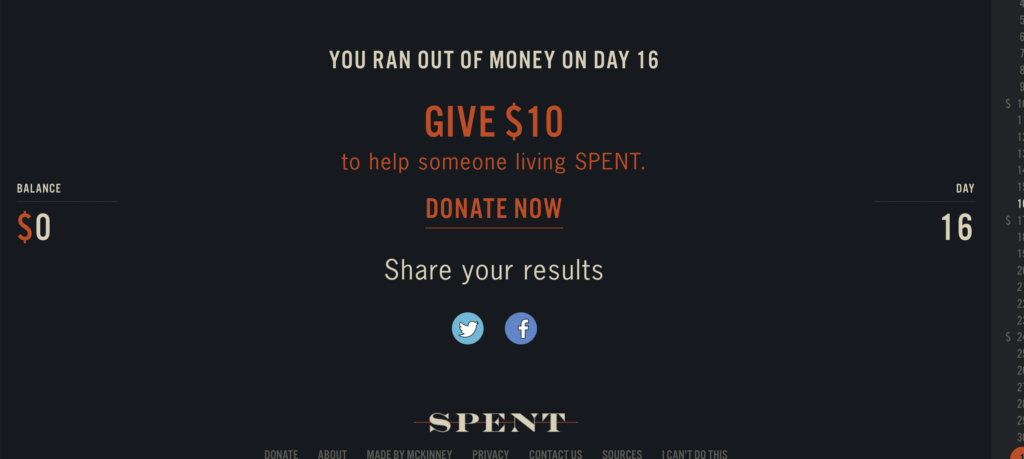
This realization compels the player to adjust their strategies, sometimes opting for decisions that might seem “wrong” at first glance:
– Ignoring calls from the Consumer Collections Corp regarding overdue car payments:

– Overlooking credit card bills:
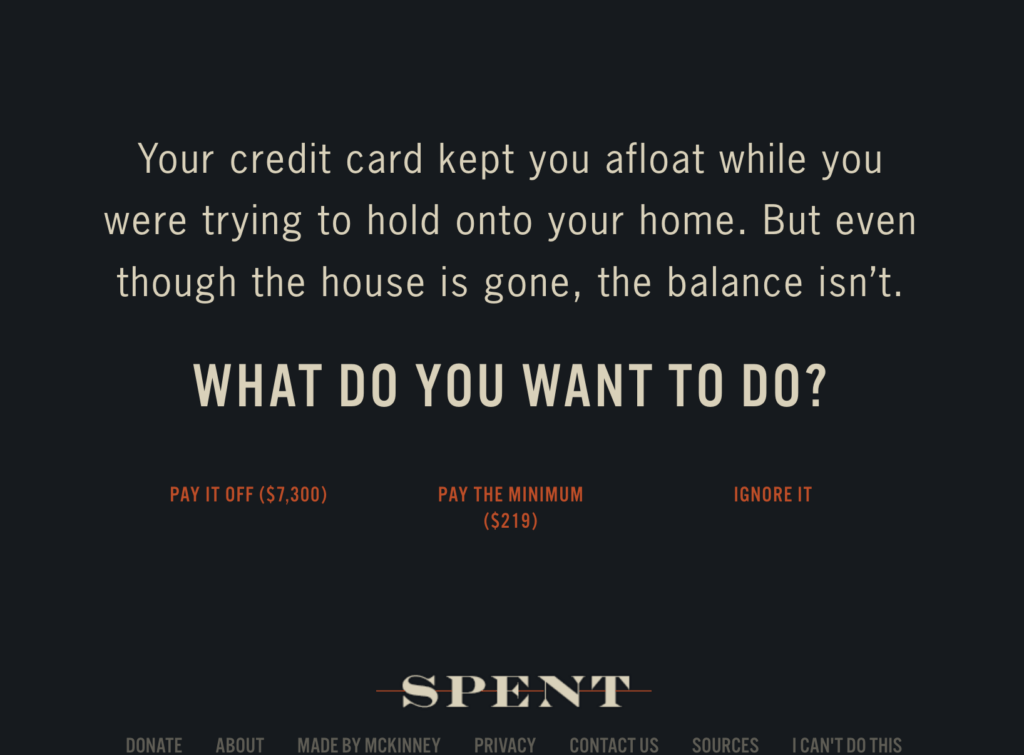
– Heading to work despite being unwell:
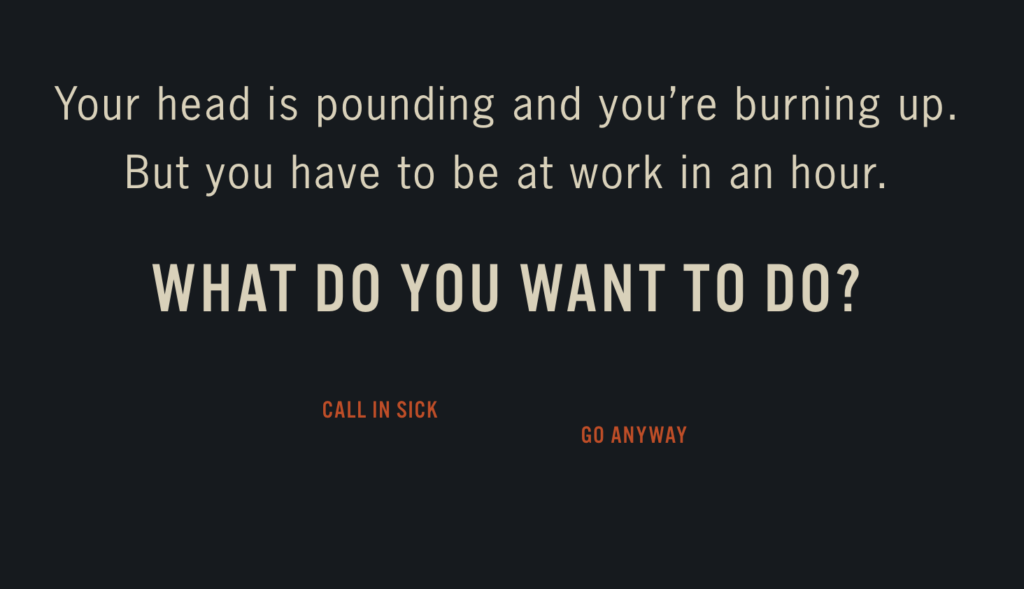
As the game progresses, the player might also find themselves grappling with tough ethical dilemmas: Should they invest in a tutor for their child’s academic success? Or, when facing hefty veterinary bills they can’t afford, should they make the heartbreaking choice to euthanize their pet?

The game’s dynamics complicates further as certain “wrong” decisions—like neglecting a medical bill—can lead to greater financial repercussions down the line, such as increased costs for future medical care.
Aesthetics:
- Challenge: From the get-go, the game sets the tone on its loading page, daring the player to “accept the challenge” of navigating the hardships of a 30-day period on a limited income. This challenge motivates players to test their mettle and strategize effectively to wade through the intricacies of the game.
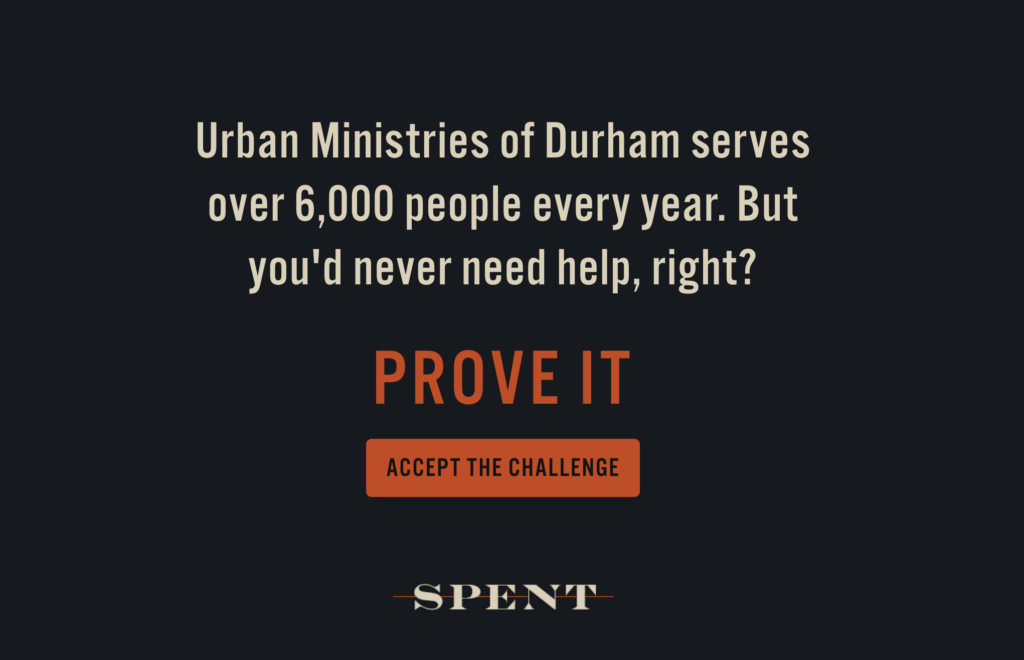
- Narrative: By assuming the role of a character and facing diverse real-life scenarios, the player becomes deeply immersed in the game’s narrative. This storytelling aspect is further reinforced on the “Result” page following each scenario. Here, the player is provided with pertinent facts and statistics about real-world situations in the United States, adding depth and context to their in-game decisions.
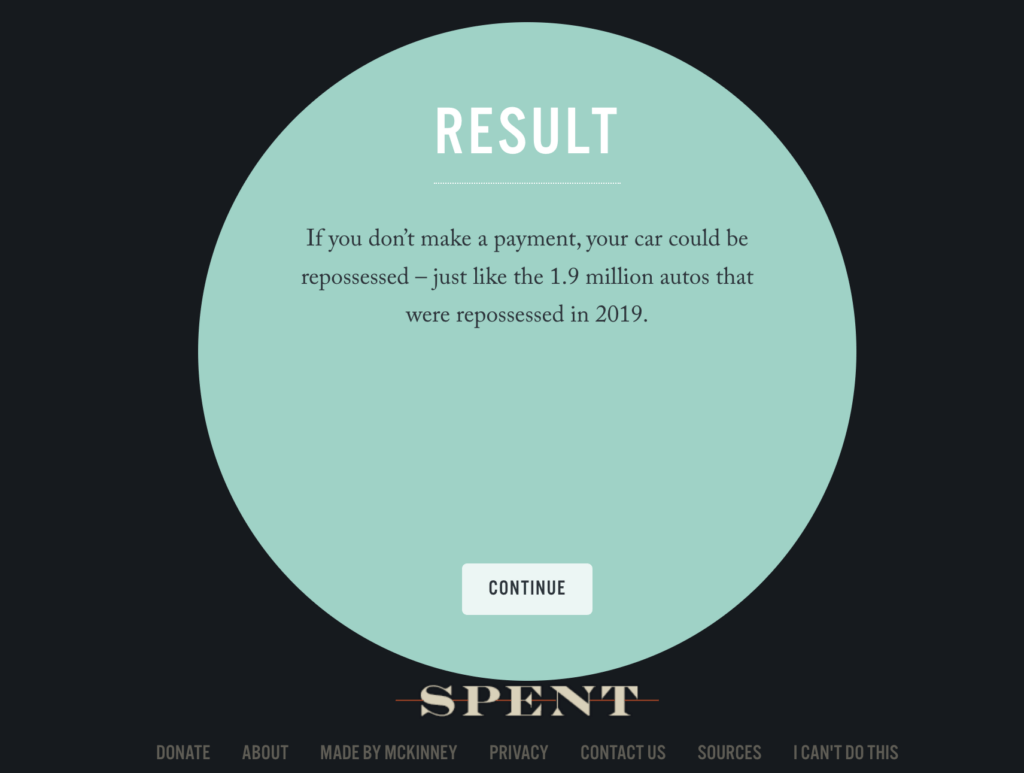
- Discovery: The game offers a myriad of decision pathways, and with scenarios varying in each playthrough, there’s a strong incentive for the player to engage in multiple sessions. They’re driven by the allure of exploring alternate routes, encountering fresh scenarios, and experiencing the various outcomes that come with each choice.
- Expression: The game isn’t just about making the “right” or “best” decisions; it’s also about introspection. The player often bases their choices on personal values, and as they make these decisions under the pressure of financial limitations, they might gain new insights into their own priorities and value systems. For instance, they might find themselves facing tough questions like whether to prioritize their child’s education over ensuring there’s food on the table.
Outcomes:
- Attitude: A prevailing misconception is that financial hardship stems predominantly from individual choices. However, the game dispels this notion by immersing players in the relentless realities faced daily by those under economic duress. As they navigate the intricate web of challenges and pivotal decisions, players get an up-close view of the multifaceted nature of poverty, reshaping their understanding and inducing a deeper appreciation for the complexities of life on a tight budget.
- Information: Beyond just gameplay, the game serves as an educational tool, enlightening players about the pressing issues surrounding poverty in the U.S. As they progress, they’re presented with stark facts and data regarding the tribulations of low-income communities—drug dependency, heightened stress levels, illicit job terminations, unjust rent hikes, and evictions. The game further dives into the legislative landscape, helping players understand policies and frameworks that either help or hinder these communities.

- Aesthetics: The game doesn’t shy away from evoking complex emotions in players. They’re frequently pushed into morally gray zones, where their values are tested against financial imperatives. This emotional rollercoaster not only makes the gameplay memorable but also heightens the game’s efficacy in sensitizing players to the challenges of poverty, fostering empathy and understanding for the systemic hurdles encountered by the economically disadvantaged.
- Behavioral Change: The game doesn’t stop at awareness—it incites action. At its conclusion, players are prompted to donate $10 to assist those struggling. While many players might be privileged enough not to face such adversities personally, the game encourages them to extend a helping hand, demonstrating the game’s potential to translate virtual empathy into tangible real-world impact.
